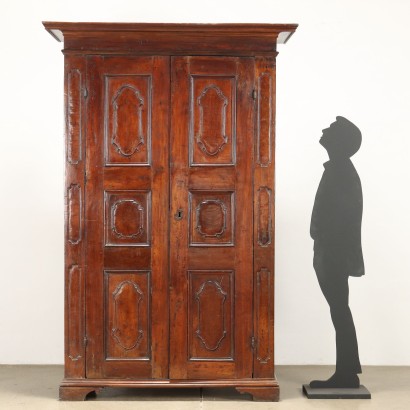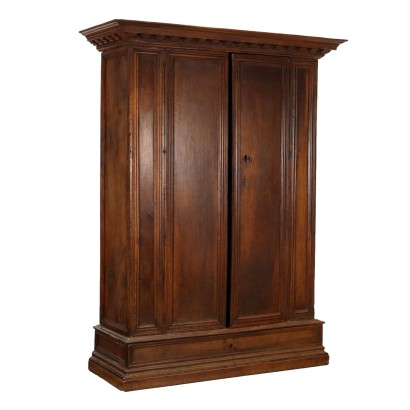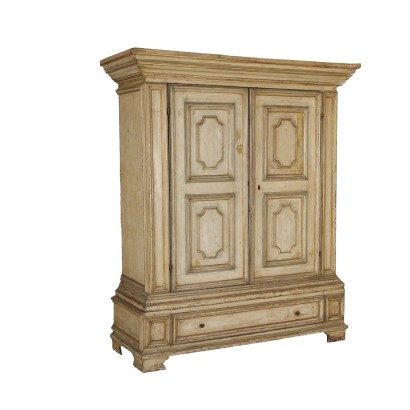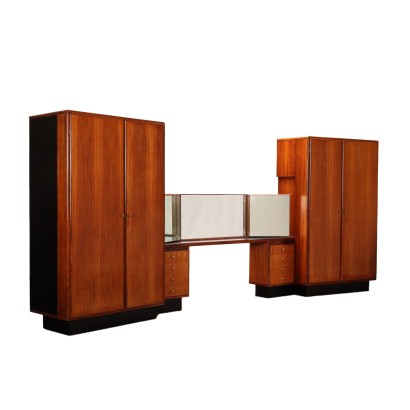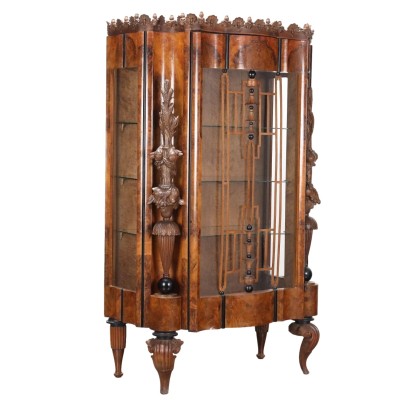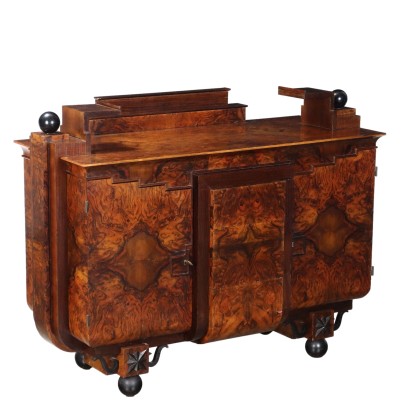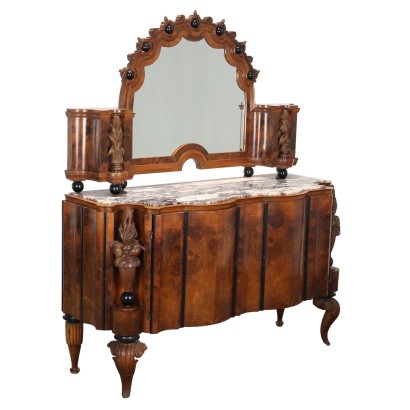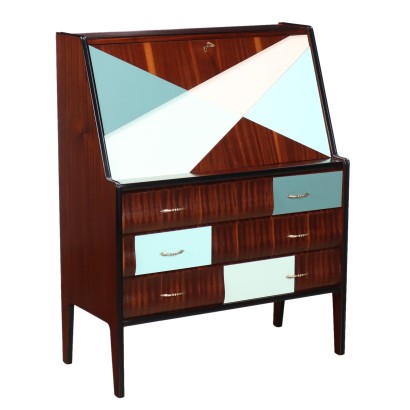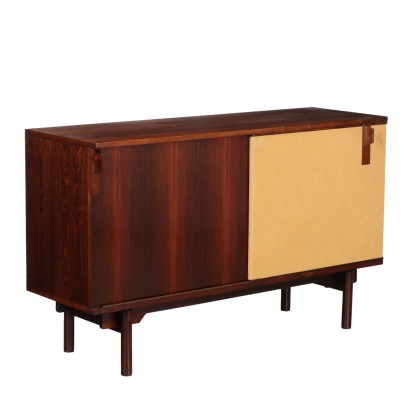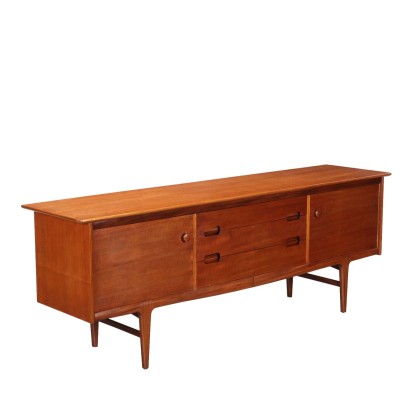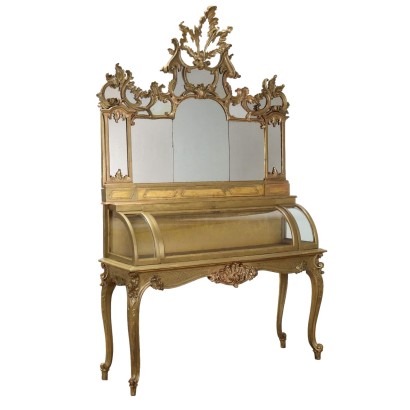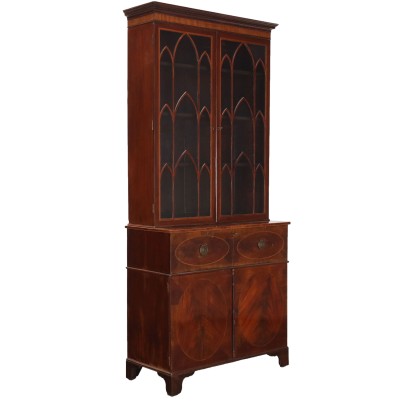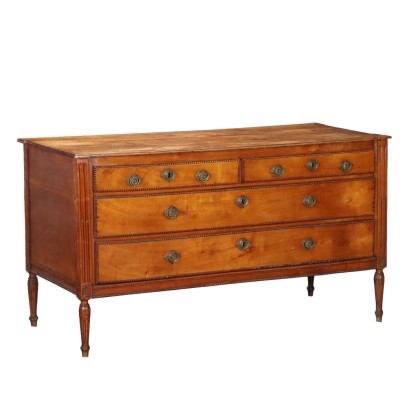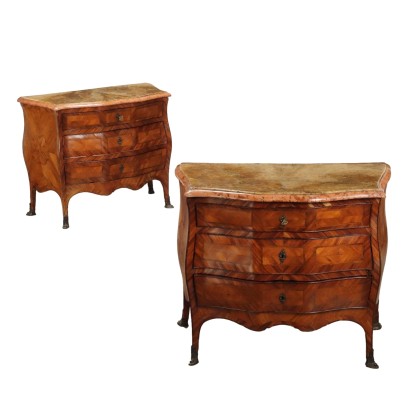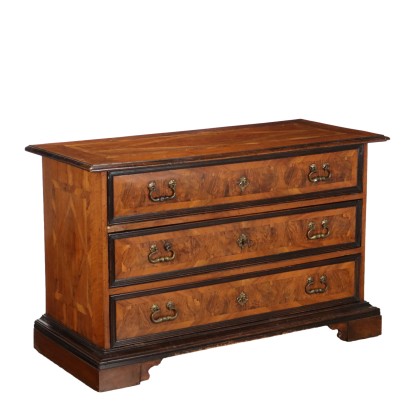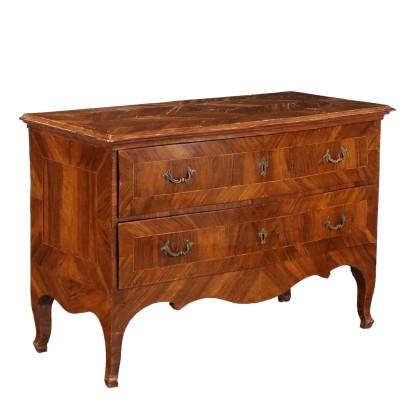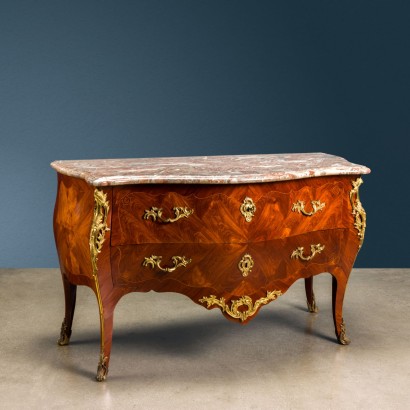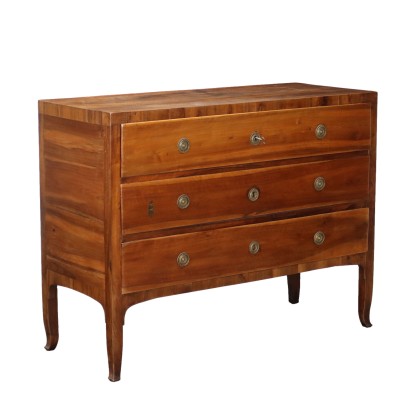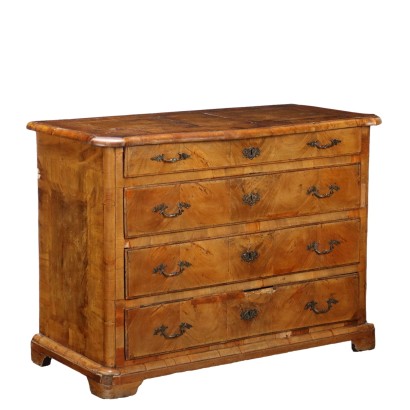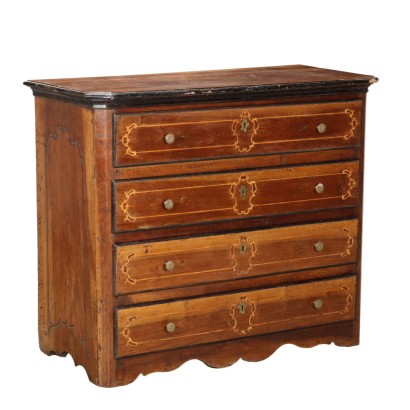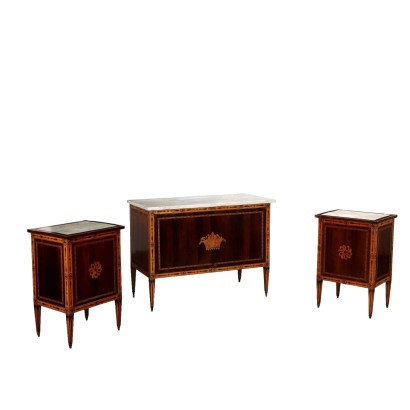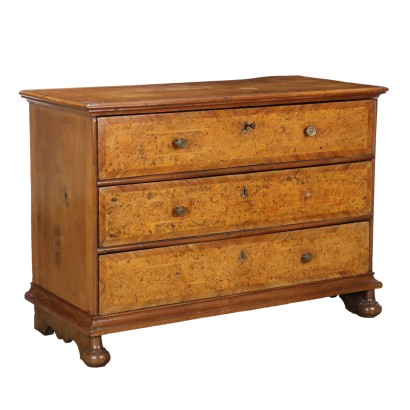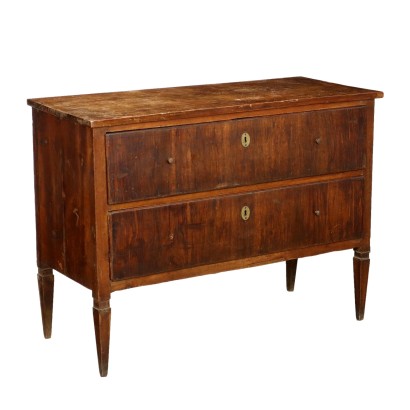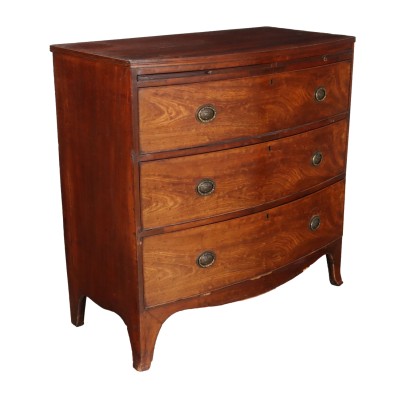Antique Wardrobe with 2 Doors Walnut Italy XVII-XVIII Century - Italy, Late XVII - Early XVIII Century
Features
Italy, Late XVII - Early XVIII Century
Age: 18th Century / 1701 - 1800 , 17th Century / 1601 - 1700
Origin: Italy
Main essence: Walnut
Description
Wardrobe with two paneled doors decorated with carved tiles, also present on the uprights; it is supported by bracket feet. In walnut.
Product Condition:
Product which due to age and wear requires restoration and re-polishing. We try to present the real state of the furniture as completely as possible with photos. If some details are not clear from the photos, what is stated in the description applies.
Dimensions (cm):
Height: 234
Width: 154,5
Depth: 71
Additional Information
Age:
18th Century / 1701 - 1800
18th Century / 1701 - 180017th Century / 1601 - 1700
17th Century / 1601 - 1700Main essence: Walnut
Walnut wood comes from the plant whose botanical name is juglans regia , probably originally from the East but very common in Europe. Light or dark brown in color, it is a hard wood with a beautiful grain, widely used in antique furniture. It was the main essence in Italy throughout the Renaissance and later had a good diffusion in Europe, especially in England, until the advent of mahogany. It was used for solid wood furniture and sometimes carvings and inlays, its only big limitation is that it suffers a lot from woodworm. In France it was widely used more than anything else in the provinces. In the second half of the eighteenth century its use decreased significantly because mahogany and other exotic woods were preferred.Other customers have searched:
Approfondimenti
Per saperne di più sugli armadi antichi, consulta i nostri approfondimenti:Semplicità e funzionalità dell'armadio lombardo tra '600 e '700
Gli arredi di antiquariato by FineArt
Uno stipo toscano tra XVI e XVII secolo
Sull'antiquariato in generale dai un'occhiata anche a
Classic Monday: da un pezzo dei nostri magazzini alla storia dell'antiquariato
L'antiquariato dalla A alla Z: il Dizionario dell'Antiquariato
Il dizionario dell'antiquariato - Lastronatura
Il dizionario dell'antiquariato - Mascherone
Il dizionario dell'antiquariato - Natura morta
Il dizionario dell'antiquariato - Opificio
Il dizionario dell'antiquariato - Pastiglia
Il dizionario dell'antiquariato - Savonarola
Il dizionario dell'antiquariato - Rosone
Product availability
The product can be seen at Cambiago
Immediate availability
Ready for delivery within 2 working days from ordering the product.


